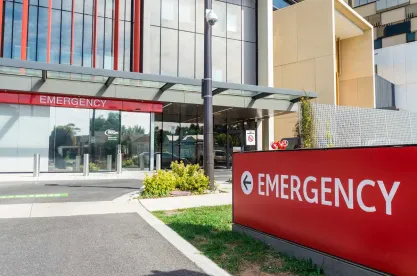On January 30, 2023, the Biden Administration announced its intent to end the COVID-19 public health emergency (PHE) on May 11, 2023. For Federally Qualified Health Centers (FQHCs), flexibilities offered under the PHE expanded opportunities to be paid for telehealth services, particularly for Medicare patients. Any FQHC relying on PHE flexibilities should begin preparing for the end of the PHE to ensure its service offerings are in compliance with post-pandemic requirements.
Medicare Telehealth Reimbursement for FQHCs Will Be Sharply Limited for Most Services After December 31, 2024
Although the PHE will officially end on May 11, 2023, Section 4113 of the Consolidated Appropriations Act of 2023 (CAA) extended the Medicare authority for an FQHC to receive payment for telehealth services to December 31, 2024. Unless further changes are made, however, Medicare payment to FQHCs for distant-site telehealth services will largely become unavailable after December 31, 2024.
During the PHE, FQHCs have been allowed to serve as distant site providers furnishing telehealth services through interactive real-time audio and video technology, and in some instances, through audio-only technology. The Centers for Medicare & Medicaid Services (CMS) has been required to develop special payment rates for these telehealth services for the period in which they are authorized. Health care practitioners furnishing distant site telehealth services have been able to do so from any location, including their home, during the time in which they are working for the FQHC. Covered services have included all telehealth services included on the list of Medicare telehealth services under the Physician Fee Schedule. In contrast, once the PHE flexibilities lapse (including the flexibilities extended through the CAA), FQHCs may not serve as distant practitioners for telehealth services, with the exception of mental health services.
In addition, during the PHE a patient’s home has been allowed as an originating site — meaning the patient may be physically located at home while receiving FQHC covered telehealth services. After December 31, 2024, patients’ homes will not be eligible originating sites, and most FQHCs may serve as the originating site for telehealth services only when located in a rural health professional shortage area or a county that is not included in a metropolitan statistical area. One exception allows the patient’s home to be an originating site for patients receiving treatment for substance use disorders and related conditions.
Other more limited Medicare telehealth flexibilities will end for FQHCs earlier. For example, on May 11, 2023, when the PHE ends, FQHCs will no longer be able to bill for virtual communication services without qualifying in-person visits or post-virtual visit conditions, nor allow patient consent to occur at the time of virtual check-ins and e-visits. Furthermore, on December 31, 2023, the flexibility allowing FQHCs to utilize interactive audio and video telecommunications technology to meet direct supervision requirements will end.
FQHCs Will Have More Flexibility to Furnish Mental Health Services Via Telehealth
After December 31, 2024, mental health services may still be furnished through telehealth by clinical psychologists, clinical social workers, or other FQHC practitioners providing mental health services to patients located at their homes, subject to the following conditions:
- the patient must have an in-person mental health visit six months before the telecommunications visit; and
- there generally must be an in-person mental health visit at least every twelve months during active treatment.
FQHCs may provide such mental health services via audio-only technology when the patient is not capable of or does not consent to video technology.
Medicaid Telehealth Reimbursement for FQHCs After the PHE Varies by State
States have more latitude in structuring Medicaid FQHC payments, including whether and how to reimburse FQHCs for the provision of telehealth services. CMS has noted that telehealth flexibilities for Medicaid and the Children’s Health Insurance Program are not tied to the end of the PHE, and in fact were offered by many state Medicaid programs long before the pandemic. This statement reflects the CMS position that for Medicaid purposes telehealth is a method of delivering services, and not a separate service.
Nonetheless, many states sought emergency state plan amendments to alter telehealth coverage and payment rules during the last few years, which may result in important coverage and reimbursement changes once the PHE ends. In some cases, however, states have already implemented new legislation or state plan authority to make emergency changes permanent. FQHCs should monitor evolving state legislative actions and Medicaid agency guidance to evaluate how telehealth coverage and reimbursement rules may change in their states after the PHE.
Practically speaking, the impact the end of the PHE will have on telehealth services provided by FQHCs — particularly with respect to Medicare patients — will be profound. FQHCs should take steps now to bring operations into compliance with the post-PHE world before December 31, 2024.





 />i
/>i
